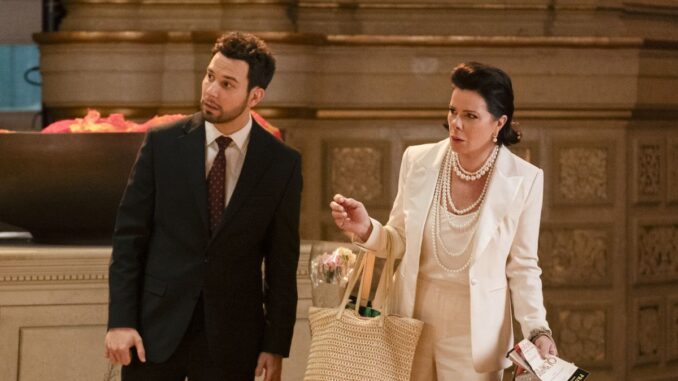
Why So Help Me Todd Really Got Canceled After Season 2: A Calculated Exit in a Ruthless Industry
The news hit fans of So Help Me Todd like a rogue briefcase to the head: canceled after two seasons. For many, it felt like a cruel joke, especially for a show that had quietly carved out a niche as reliable, charming comfort viewing on CBS. The common refrain, as with most network cancellations, was "ratings." But to simply point to the Nielsen numbers is to scratch only the surface of a far more complex and often brutal ecosystem. So Help Me Todd's cancellation wasn't just a simple matter of viewership; it was a calculated decision born from the confluence of acceptable-but-not-dominant performance, the ruthless economics of network television, and a subtle but significant lack of broader industry "buzz" that would justify its continued existence.
Firstly, let's address the elephant in the room: the ratings. Yes, So Help Me Todd's numbers were, at best, middling. It consistently drew a respectable, if unspectacular, audience of around 4-5 million live viewers, predominantly in the older, loyal CBS demographic. It held its own, particularly for a Friday night slot – a traditional graveyard for shows the network isn't sure what to do with. Yet, "holding its own" is a vastly different beast from "dominating" or "growing." In the high-stakes gamble of network television, merely being fine isn't good enough anymore, especially for a drama series. Networks aren't just looking for shows that maintain an audience; they're hungry for breakout hits, for shows that generate buzz, that can launch successful syndication runs, or that demonstrably grow their lead-in audience. So Help Me Todd, for all its gentle humor and engaging performances, was a workhorse, not a thoroughbred winning awards or setting Twitter ablaze. It was dependable, but it lacked the imperative, the gravitational pull that forces a network to greenlight another season, especially when other, potentially more promising pilots are waiting in the wings.
This brings us to the second, and arguably most critical, factor: the cold, hard economics of network television. A show like So Help Me Todd, filmed on location in Vancouver, featuring a recognizable lead like Marcia Gay Harden, is not cheap to produce. Every episode represents a significant investment, and networks need a clear return on that investment. The golden goose for network shows is syndication – the ability to sell reruns to cable channels, streaming platforms, or local stations for years after the original run. To achieve profitable syndication, a show typically needs around 100 episodes. Two seasons, totaling just over 40 episodes, is a far cry from that magic number.
For a network to continue investing in a show that isn't a smash hit, there needs to be a strong belief that it will reach that syndication milestone, or that it has incredible ancillary value (like attracting a desirable demographic for advertisers, or becoming a streaming draw). So Help Me Todd, while pleasant, didn't appear to be on a trajectory for either. Without the promise of syndication gold, and without truly stellar live ratings or significant critical acclaim, the show became an expensive placeholder. Why continue to funnel millions into a show that's merely "fine" when those funds and that valuable time slot could be allocated to a brand new pilot with the potential to be the next big thing, the next Tracker, or the next NCIS spin-off? The network's decision becomes a matter of opportunity cost.
Finally, while the show possessed a charming conceit – the uptight lawyer mother and her charmingly chaotic private investigator son – and genuinely strong performances from Harden and Skylar Astin, it struggled to break through the noise of peak television. Was it truly a groundbreaking, water-cooler sensation? Did it generate significant social media engagement or critical discussion beyond its core fanbase? The honest answer is no. It was delightful, well-executed comfort food, but in an era of hyper-curated content and serialized dramas that demand fervent viewer loyalty, being merely "delightful" can be a death knell. The lack of that wider "buzz" meant it wasn't a show that CBS could prominently showcase, or that would draw in new, younger demographics crucial for future growth. It satisfied its existing audience, but it didn't ignite passion beyond it.
In essence, So Help Me Todd's cancellation wasn't an act of malice or a sudden dip in quality. It was the result of a dispassionate, business-driven calculation in an unforgiving industry. The show was a perfectly serviceable, even enjoyable, component of the CBS lineup. But in a landscape where every minute of airtime and every dollar of production cost is scrutinized, "serviceable" often isn't enough to secure survival. So Help Me Todd simply didn't provide enough imperative for renewal, falling victim to the brutal, yet often necessary, decision-making that prioritizes potential blockbusters and long-term profitability over the quiet, consistent charm of a show that, while loved by many, wasn't quite essential enough for the network.
